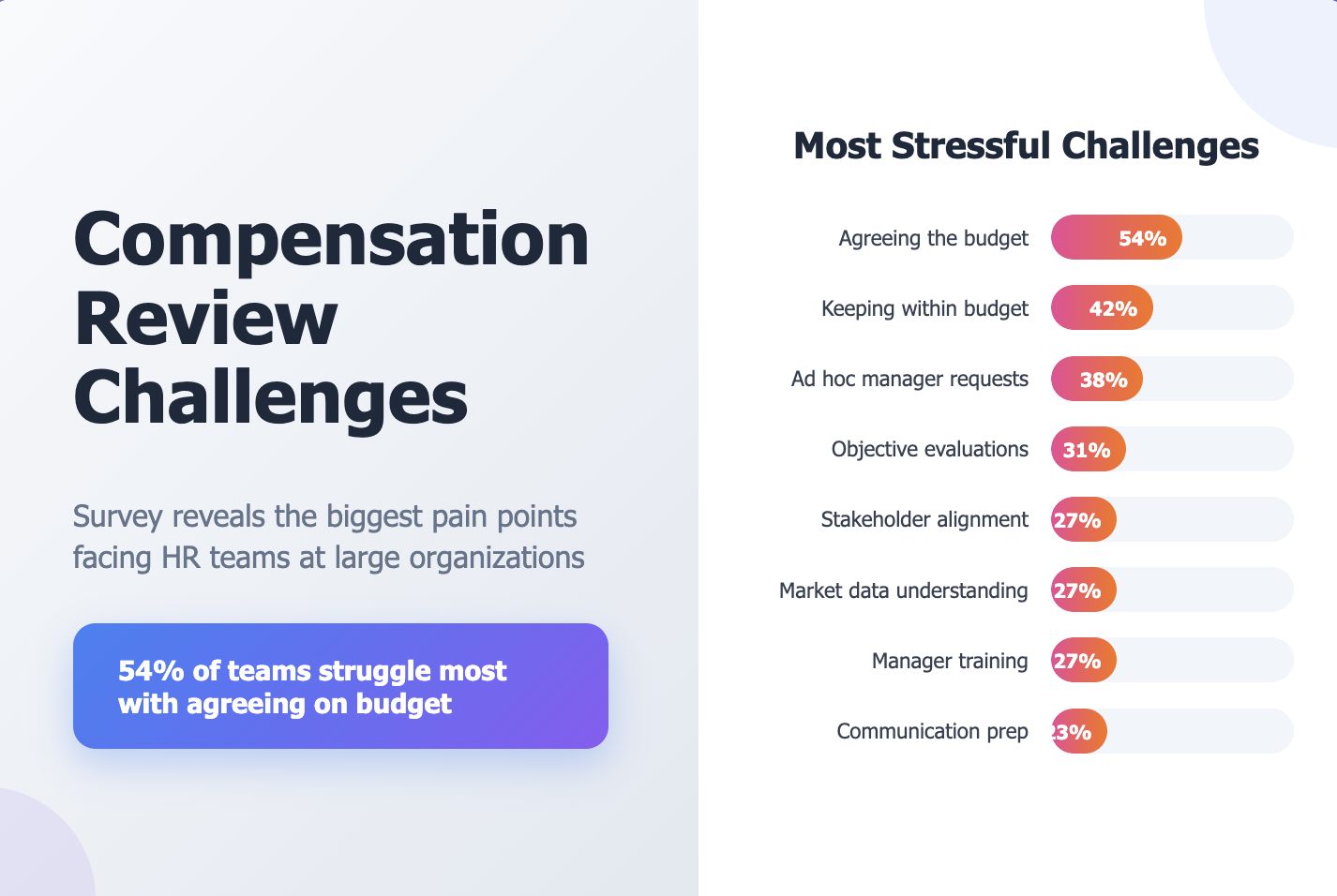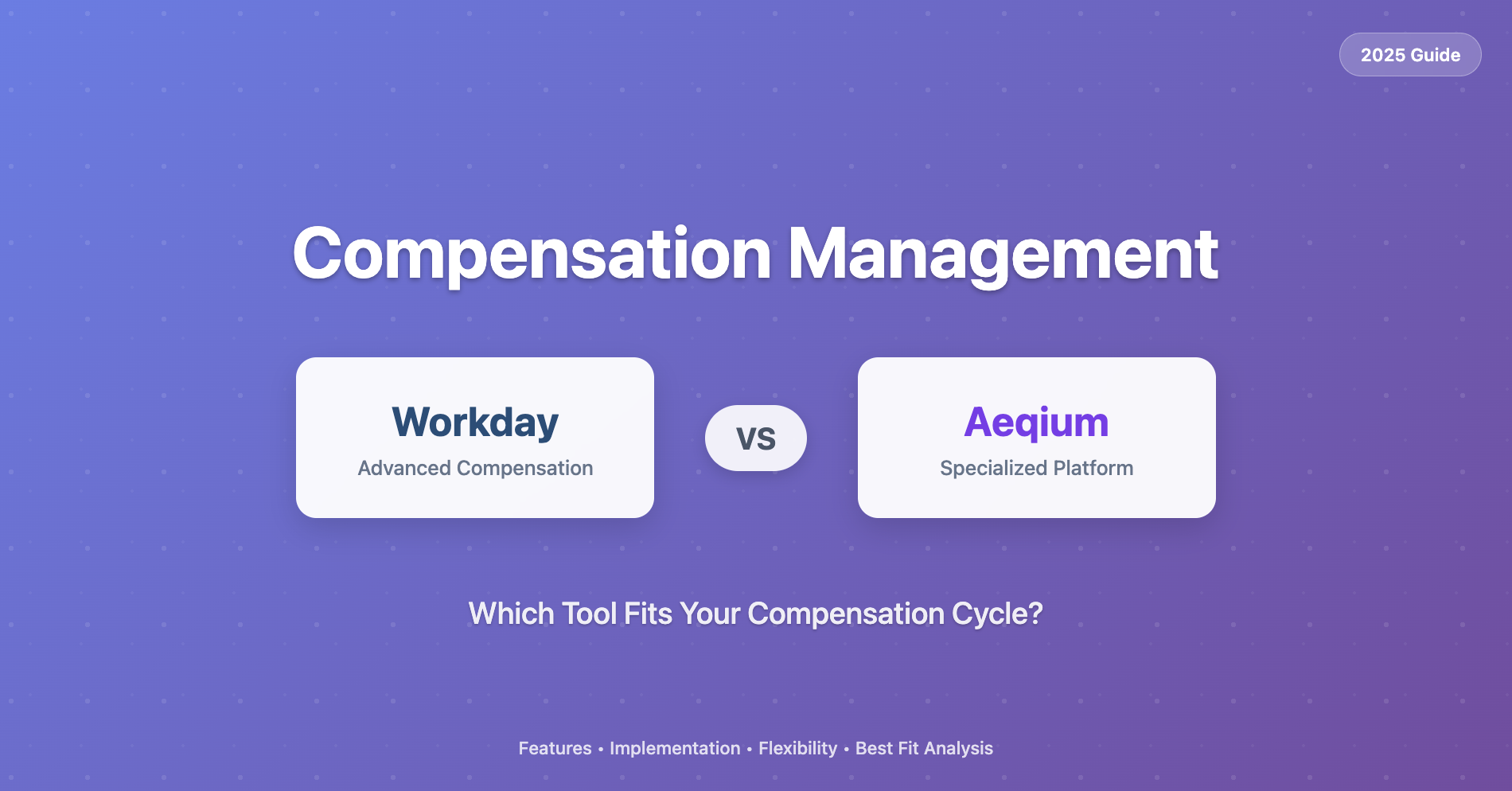What Are Comp Bands, and Why Do You Need Them?

As a company matures, it’s important to structure your compensation into bands. Comp bands are a simple framework for structuring total compensation on your team, and are simple to set up:
- For every role and level, establish a standard range of compensation (base, bonus, equity).
- Use comp bands to create offers, determine merit adjustments, and calibrate promotion raises.
- Apply a consistent strategy – for example, all new hires come in at the bottom of a band, merit raises move you up within a band, and upon promotion you’re bumped up to the bottom of the next rung on the ladder.
- Adjust bands as you gather more data on the market.

Once bands have been created, they provide a simple and scalable framework for determining compensation for your team.
The Power of Compensation Bands
There are many scenarios where comp bands can either greatly simplify decision-making, or prevent problems before they arise:
“We have many hiring managers on our fast-growing team, and all of them are making offers to new candidates. But they all make decisions differently – some managers want to pay more to get new hires in the door, and others are more conservative.”
Comp bands minimize arbitrary decision-making. Typically, hiring managers have leeway to negotiate compensation up to a certain amount for a particular role, with further adjustments requiring approval. Comp bands also ensure consistency in decision-making across groups when it comes time to determine merit or promotion-based raises.
Bands also make budgeting simpler. Once compensation is a function of role, you can easily calculate your total burn under different hiring projections.
“I heard that the new engineer on the team is getting paid more than me – and I’ve been at the company for 4 years. What’s going on?”
Salary compression occurs when new hires are paid more than existing employees in the same role – or sometimes, more than employees in more senior positions. This typically arises when candidates negotiate skillfully and exceed the compensation of more tenured employees, or when market conditions change. Salary compression is generally the opposite of what you want – your most tenured employees are known quantities who you’ve trained, and should be more valuable than new hires at the same level.
Comp bands prevent compression. Since new hire offers and promotion raises are generated from the same framework, you can ensure that there is consistency and harmony on your team.
“We looked at the compensation for the product team, and it looks like certain groups are making significantly less than others after adjusting for job title. Is there a pattern of unequal pay in this department?”
Systemic pay inequality can arise from several causes, such as societal inequities or a propensity among certain groups to negotiate more. Comp bands enforce fairness across your employee-base by strictly tying compensation to performance. Once you’re using them to determine what people are paid, you can more easily troubleshoot or dodge pay inconsistencies.
Making the Most of Comp Bands
Comp bands become important once companies have a few dozen employees. If you’ve grown past ~100 employees with an ad hoc compensation scheme, you should probably prioritize getting them in place immediately.
Bands should be periodically reassessed. Some fields such as software engineering have seen significant rapid rises in compensation – yesterday’s compensation levels might have worked well, but they won’t be competitive now. If you need to make an adjustment, you should conduct a “market adjustment” and re-evaluate comp for all employees in that band to prevent salary compression.
Hiring managers need to know the bands for roles that they are hiring, but typically don’t know the details of their own bands or more senior levels. To restrict sensitive information, you should store your bands in a system with role-based access controls (we’re here to help).
And most importantly – only break bands in exceptional circumstances. The power of comp bands comes from following them as strictly as possible. Once you start to break your bands, you lose the value that they bring.




